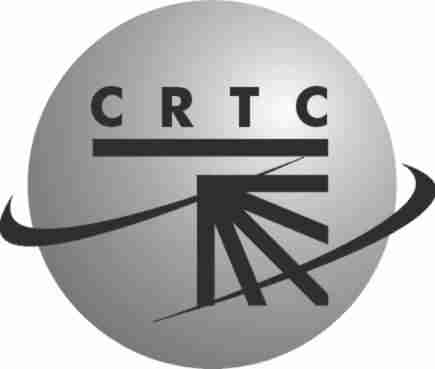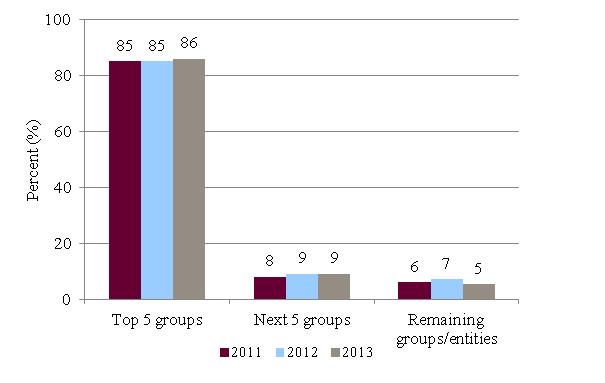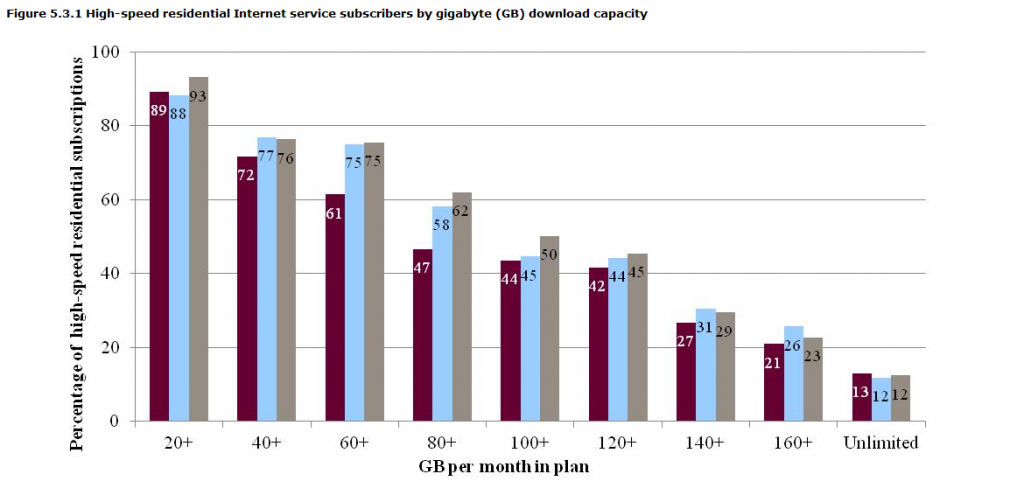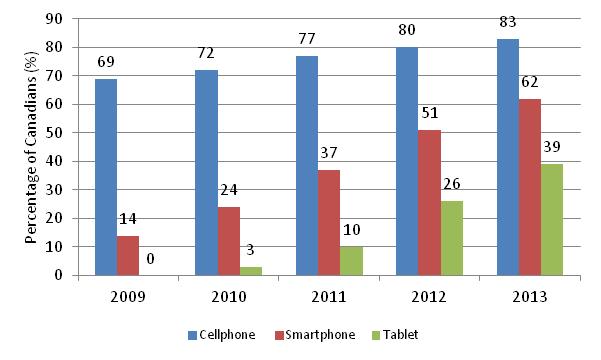
Let’s pile on the CRTC! Everyone’s doing it. There is just so much going on in the CRTC right now I barely even know where to start. Let’s recap the week that was (and is still going on) at everyone’s new favourite punching bag regulator, the CRTC.
Wholesale mobile wireless services hearings
You can watch them live right now! Sure, you would think CRTC hearings are boring, but remember the CRTC hearings last week? Fireworks! Bell Mobility is scheduled for today and Quebecor is scheduled for tomorrow. That should be fun, no? But what are the hearings about you may ask. Let’s go to the notice:
Given the importance of mobile wireless services in Canada, the Commission is hereby initiating a proceeding to determine whether the wholesale mobile wireless services market is sufficiently competitive (SPOILER ALERT: It’s not.) and, if not, what regulatory measures are required.
What is the “wholesale mobile wireless services market” you are no doubt asking. Here you go, again from the notice:
The components of a mobile wireless network are numerous and functionally complex. Radio spectrum is the medium over which all wireless signals are transmitted, and wireless carriers in Canada hold spectrum licences that allow them to provide services within a specific geographic area. In addition to spectrum, wireless carriers require equipment, such as towers, switches, and transmission facilities, to offer wireless services within their coverage area.
Basically the little guys (your Wind Mobile and the like) rent the air (well, part of it) towers and other equipment from the big guys (Bell and Rogers) so they can offer wireless services. As usual, the little guys probably get screwed, because the big guys are an oligopoly. You don’t need a week of hearings to tell you that. But here we are.
Netflix follow-up
I updated my last CRTC post with this, but it bears repeating. The CRTC got so pissy at Netflix for refusing to turn over their information, they decided to pretend that the whole thing never happened. In a CRTC letter to Netflix, they wrote:
Netflix’s intervention and supporting documentation will be removed from the public record of this proceeding on October 2, 2014
If we can’t read about a large corporation’s participation in a hearing, did it even happen? (Yes. Yes it did.). The letter has some nice juicy bits:
A company’s refusal to comply with requests and orders duly made at a public hearing is a serious matter. Parties who choose to engage in Commission proceedings, especially large important corporations such as Netflix, cannot unilaterally choose which part of the evidence-gathering proceeding they want to participate in. The Commission views such actions as a direct attempt to undermine its ability to serve Canadians, as well as impair the procedural fairness owed to all participants.
Yes, it is a serious business. However, Netflix was nice enough to appear in the first place, voluntarily. So in fact, they can unilaterally choose. I brought up the whole “does the CRTC even have jurisdiction over Netflix” argument in the last post, so I’m not going into that again. If the CRTC really believes that they have authority to order Netflix to turn over information, they should have walked into Federal Court and said so. They did not. Instead they took their ball and went home.
Google too!
For some reason Netflix grabbed all the headlines, but Google did the same thing. They also refused to turn over information, and they also got a letter in response from the CRTC. It is a virtual carbon copy of Netflix’ letter, with the same conclusion:
Google’s intervention and supporting documentation will be removed from the public record of this proceeding on October 2, 2014
Yesterday, Google’s Executive Chairman Eric Schmidt happen to come to Canada (on a book tour), and jumped into the debate. This quote from him goes to the heart of the matter, and possibly the future of the CRTC:
We’re taking the position that governments need to ultimately serve their citizens by giving the citizens choices, and the market will sort it out
Free market! What a novel concept.
The pundits react
I have a collected a sampling of fascinating and / or barely amusing headlines from across Canada in the last week regarding the CRTC and its possible deathknell:
- The CRTC: Let’s pretend we didn’t talk TV with Netflix or Google
- CRTC shown to be irrelevant dinosaur
- The CRTC is toast — and good riddance
- Stopping the Can-con charity
- Tune out the CRTC
Listen people. You cannot kill the CRTC, no matter how hard you try. You try to crush it, but it will come back to life like a phoenix, rising from Arizona.
CRTC report: The internet is big and important!
Meanwhile, lost in all this foofaraw of hearings and Netflix, the CRTC last Thursday released their 2014 report on the state of the Canadian telecommunications industry. Despite the title, the data is about 2013. This is a big and important report which has all sorts of fun facts and figures. I was originally going to go through it as its own post (like I did last year), but the numbers made me fall asleep about halfway through. It also fits nicely in this post.
So let’s hit some highlights. We’ll focus on the internet parts of “telecommunications” for obvious reasons. But let’s start with an overview of the $44.8 billion (!!) telecom industry, in handy chart form, entitled “Percent of total combined telecommunications revenues by ownership groups and remaining groups/entities”:
 If that chart doesn’t scream “oligopoly”, I don’t know what does.
If that chart doesn’t scream “oligopoly”, I don’t know what does.
OK, to the internet! People use it! Companies provide it! Well a few companies anyway:
In 2013, there were over 500 Internet service providers operating across Canada. Five in particular—Bell Canada, Quebecor Media Inc., Rogers Communications, Shaw Communications, and TELUS Communications Company—collectively dominated the market for Internet services
If there was ever an award for “least surprising fact about the internet in Canada” this would win in a landslide. There is then a lot of stuff about revenues (they’re up!) and high-speed and ultra high-speed connections (they’re up!). Everything’s up, except dial-up (/rimshot). Would you like to get mad about how little your plan allows you to download per month? Voilà:

Yeah, that blows. The report then goes on (without irony) to show that Netflix and Youtube use a shitload of bandwidth. Your average home package (60 Gb / month) gives you about 23 hours of watching Netflix in HD according to the report. Traditional TV will never die with those numbers. People are just downloading more and more generally:
The average number of gigabytes downloaded per month by residential service subscribers increased by 57% between 2012 and 2013, rising from 28.4 to 44.8 gigabytes
That’s a pretty big fucking jump. Let’s do one last chart, to state more of the obvious. Devices! People have them!
True confession: it is my greatest shame as an internet person that I do not own a tablet. I need one of them, and quick! Before I am the minority.
In conclusion
The CRTC says the internet is very important, people are using it more and more, and we’re going to antagonize two of the biggest and most important internet companies around. OK, then.


Whaa…hang on – you don’t own a tablet??!! WTF – this is 2014 and you are an internet lawyer – how can you not own a tablet? The mind boggles…great read btw!
Thx Kevin
Yes, it is true. I will go to the box for two minutes and feel shame. I have what is called an ultra portable and have used it for 4 years or so. It’s a full Windows machine with a small screen and a close to full size keyboard. So that essentially serves my tablet needs – traveling with something small, and allows me to do real work because of the keyboard. But yes, I need a tablet!
Allen, may I recommend the KOBO ARC 7″HD. For Canadians far superior to the kindle in terms of reading books. The operating system is just as liberated as the Nexus. It has 1920 X 1080p display and costs $200 as compared to the Ipad Mini which you need to sell your Beatles collection to afford.
Allen are you going to blog about the Harper goverments latest Soviet Style copyyright proposal. The one that creates a new class of copyright laws applicable only to political parties?
I would also like to offer you the use of my word anchorism, (which perfectly describes the CRTC) in perpetuity without corroboration.